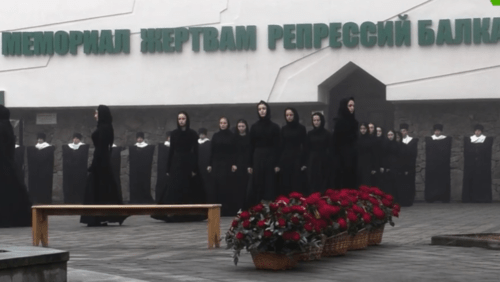
09 March 2024, 13:25
Activists assess impact of deportation on Balkar people's fate
Now, even 80 years later, deportation consequences are telling on Balkars' fate; in particular, many nationals died during the deportation; and rehabilitation cannot be considered complete, activists of public organizations have stated. In their opinion, in recent years the number of informal events on the occasion of deportation anniversary has decreased; people prefer commemorating the dead within the family circle.
The deportation affected all Balkar families; it is important to preserve the memory of those who never returned from exile, said the participants in the mourning meeting in Nalchik dedicated to the 80th deportation anniversary.
The attitude of Soviet authorities towards repressed peoples was the same, Ismail Sabanchiev, the head of the Council of Elders of the Balkar People, has stated. "Cruelty was applied to all nations; they spared neither children nor the elderly," he has stated, adding that the consequences of Stalin's decision are still affecting Balkars.
Valery Khatazhukov, the head of the Kabardino-Balkarian Regional Human Rights Centre, is confident that the rehabilitation of the Balkars was never completed. He has added that every year there are fewer and fewer commemoration events.
Khakim Kuchmezov, the head of the local branch of the "Yabloko" Party, believes that during repressions, Balkars were treated more rudely. "I can state that children were treated especially harshly ... About 100 children were killed," he has explained, adding that in recent years only official events have been held in memory of repression victims. "The rest comes down to commemorating victims within the family circle," he said.
This article was originally published on the Russian page of 24/7 Internet agency ‘Caucasian Knot’ on March 8, 2024 at 09:38 pm MSK. To access the full text of the article, click here.
Author: Roman Kuzhev Source: СK correspondent




